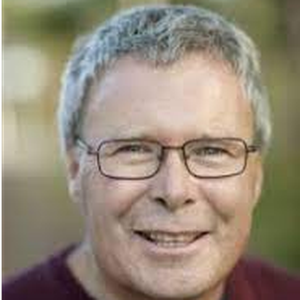
David Wardle
Plenary sponsored by Planetary BiologyDavid Wardle is a Professor of Ecology at Umeå University, and an affiliate professor at SLU in Umeå. His research explores the links between aboveground and belowground communities and how these in turn drive the functioning of terrestrial ecosystems, as well as how these linkages are impacted by global change factors. A large proportion of this research is field based and in natural ecosystems, and is mostly focused on forests and subarctic and subalpine tundra. Much of this work is done in the ecosystems of northern Sweden, though with significant past and present work also in several other parts of the world, notably Southeast and East Asia, Oceania, the Americas, and elsewhere in Europe.
Current projects focus on the community and ecosystem effects of invasive and overabundant plants and animals; the ecological consequences of wildfire in forests; ecosystem changes across natural gradients of elevation (and temperature), ecosystem development and degradation, and retrogression; the ecology, biodiversity and ecosystem functioning of island ecosystems; and ecological consequences of biodiversity loss in real world contexts.
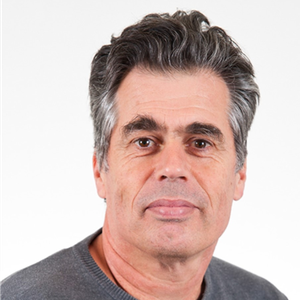
Marcel Visser
Plenary co-sponosored by the NSO and the Royal Physiographic Society of LundMarcel Visser is the head of department of Animal Ecology, NIOO-KNAW, the Netherlands. He is widely recognized as a world-leading expert on the ecological and evolutionary impact of anthropogenic environmental changes. He aims to understand how climate change disrupts natural systems, using long-term studies on wild species. His work on phenological mismatch within food chains has turned his model species, the great tit, into the poster child for climate change impact. In his research he integrates work on epigenetic regulation of gene expression, fitness consequences of timing in the wild, with the impact of climate-change on population numbers. More recently, he has started to scale up his research to entire food webs and ecosystems (the LTER-LIFE project www.lter-life.nl), as well as across larger spatial scales (SPI-Birds www.spibirds.org).
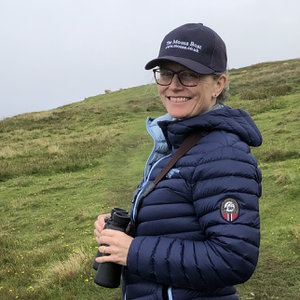
Lynn Dicks
Plenary sponsored by Biodiversity and Ecosystem services in a Changing Climate (BECC)Lynn Dicks is a Professor of Ecology at the Department of Zoology, University of Cambridge., where she leads an Agroecology Group. Their research focuses on how to protect and manage biodiversity in agricultural landscapes (almost 40% of the Earth’s ice-free land), alongside sustainable, high-yielding food production. This includes current projects on landscape-scale restoration, on what is driving global insect declines and on the biodiversity impacts of current transitions in farming systems, such as ecological intensification in South America, ‘Zero Budget Natural Farming’ in India and regenerative agriculture in the UK. She also works at the science policy interface, on how to incorporate the best available scientific evidence into decision making. She is a Board Member of the UK Government nature conservation agency, Natural England, where she co-Chairs the Natural England Science Advisory Committee. She was a Co-ordinating Lead Author of the IPBES Thematic assessment of pollinators, pollination and food production from 2014-2016, and has worked on the Conservation Evidence project at the University of Cambridge since 2009.

Helena Freitas
Ernst Haeckel Prize Winner 2024, EEF-sponsored plenaryHelena Freitas is Full Professor of Biodiversity and Ecology at the University of Coimbra and has been awarded the EEF Ernst Haeckel Award for her contributions to European ecological science, in 2023. At present, she serves as the Coordinator of the Center for Functional Ecology, overseeing initiatives at the intersection of science, societal wellbeing, and environmental sustainability. Her expertise encompasses a wide array of scientific areas, including Mediterranean ecosystems, conservation biology, microbial ecology, and policy. Currently, Helena has been fostering applied ecological research, leading several EU projects in agroecology, the agrifood sector and landscape management. She holds the UNESCO Chair in Biodiversity Safeguard for Sustainable Development since 2014 and has led a large EEA Grant initiative highlighting the value of the 12 Portuguese UNESCO Biosphere Reserves. Beyond academia, Helena has served in management and political roles and held key positions in environmental organizations (founder and president of the League for the Protection of Nature and the Portuguese Society of Ecology, and vice-presidency in the European Society of Ecology). Acknowledged for her many contributions, Helena Freitas has received numerous honours, including the Comenda of the Order of Infante D. Henrique, in 2000, and the Inspiring Portugal Award for Personality of the Year in Sustainability, in 2022.
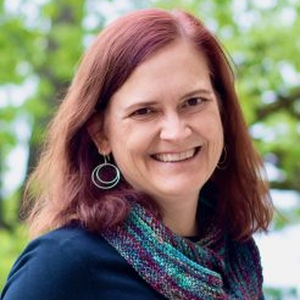
Katherine McMahon
Plenary sponsored by Planetary BiologyKatherine McMahon is a professor of bacteriology and civil and environmental engineering at the University of Wisconsin-Madison. She studies the microbial ecology of both natural and engineered systems. She uses molecular tools to investigate microbial community structure and function in lakes and activated sludge. Her work on freshwater lakes leverages the North Temperate Lakes Long Term Ecological Research program, providing rich contextual data for a 20+ year time series of microbial data. The activated sludge systems are designed to achieve phosphorus and/or nitrogen removal from wastewater, which ultimately protects surface waters from eutrophication. She combines (biogeo)chemical measurements, ‘omics and post-‘omics data, and computational modeling to describe and understand these systems. The overarching goal is the construction of more predictive mechanistic and ecosystem-scale models to use for forecasting and in silico experimentation.
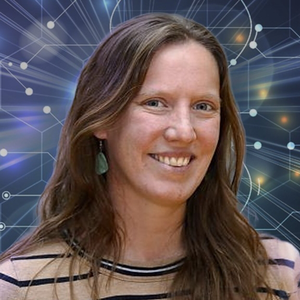
Kelly Swarts
DDLS-sponsored plenaryKelly Swarts is a DDLS fellow and a group leader at the Gregor Mendel Institute/Max Perutz Labs. Conifers have been successfully adapting to changing climates over the past 250 million years, resulting in high genetic diversity and broad environmental ranges. However, long generation times combined with the greatly increased rate of climate change globally challenges trees’ ability to adapt, resulting in weakened individuals and eventually stand loss due to, e.g., catastrophic fire or disease. Kelly's research uses quantitative, computational and population genetic approaches in forests across Europe to understand the biological basis of climate adaptation in conifers, and, in applied context, predict individuals that can make locally adapted populations more resilient to changing climate.